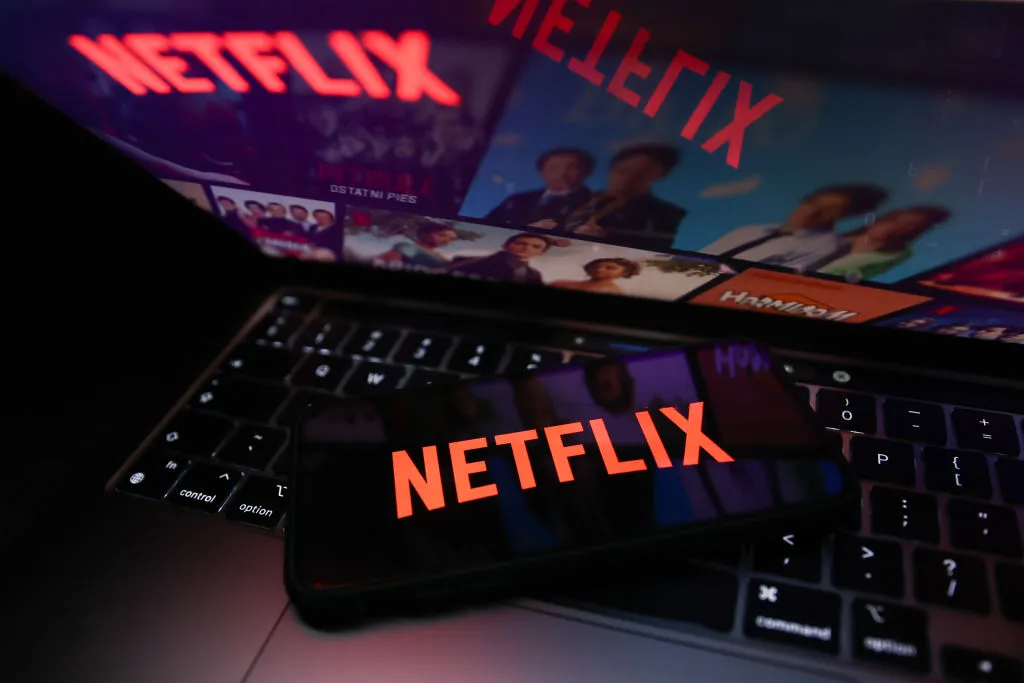If Netflix has its way, password sharing will soon become largely a thing of the past. After testing a plan to crack down on password sharing in Latin America, Netflix is set to introduce a U.S. version of this subscription identification tracking technology in March.
However, the company has remained tight-lipped about the specifics of how this will be implemented.
Earlier this week, a change to Netflix’s FAQ page, which was picked up by the press, suggested that users accessing an account from a non-“primary location” could receive a temporary code for up to seven days to verify their usage, accommodating legitimate travel by account holders.
This FAQ page was subsequently updated again to remove these details. Netflix informed The Streamable, which first noted the FAQ change, that it was an error and that the policy still applies only to the Latin American countries where the approach has been piloted.
Regardless of the final details for the U.S. market, what’s at stake is the future of over 100 million households sharing passwords, which represents more than 40% of Netflix’s 231 million paid memberships.
This issue also extends to how media companies transitioning from traditional cable subscriptions to internet-based streaming will go through a financial environment demanding higher returns on streaming investments.
The era when Netflix’s Twitter account and HBO’s former chief Richard Plepler spoke of getting people “addicted” to streaming as the primary goal is over.
In 2014, Plepler referred to password sharing as a “terrific marketing vehicle for the next generation of viewers,” according to BuzzFeed. Now, a decade later, it’s time for that next generation to pay.
Indeed, the crackdown might affect families who share passwords with children away at college. Streaming’s ‘third wave’ is expected to unfold in the coming months, as Heather Moosnick has noted.
Netflix’s terms of use restrict password sharing to individuals living at the same location, which implies that college students might not be included.
A key issue here is that college students often do not update their permanent addresses until after graduation. Even two analysts who follow Netflix mentioned that their college-aged children are currently using the family Netflix account.
“I have a daughter in college in Florida who uses a TV to watch – that will cost I suspect $5 more per month,” said Rich Greenfield from LightShed Partners.
“If she only watched on a laptop or phone, I suspect it would be no incremental cost. I suspect most parents will absorb the extra cost. Whereas friends and extended family will have to get their own accounts.”
“Almost everyone I know who password-shares does so with their families,” said Wedbush analyst Michael Pachter. “My kids are in college, so that’s legitimate. I support them. She’s part of my household. The day [my daughter] is on her own, she can get her own password.”
Netflix spokeswoman Kumiko Hidaka did not provide specifics on how Netflix will address college students. The company’s terms of use stipulate that password sharing is limited to those residing at the same location.
In testing conducted in Chile, Costa Rica, and Peru, Netflix identifies persistent sharing outside of a household using data such as IP addresses, device IDs, and account activity from devices logged into the account. Customers must agree to Netflix tracking this information as part of the service terms.
In the U.S., where subscribers are permitted to use their subscriptions while traveling, Netflix already employs similar methods to verify if subscribers signing in from hotels or Airbnbs are legitimate.

In such cases, Netflix sends a code to the primary account holder that must be entered to continue. This procedure was described in the now-deleted FAQ page, with the temporary code valid for a maximum of seven days.
For many password sharers, the simple solution might involve a quick text from the subscriber to the friend or child using the account.
The child notifies the parents of their imminent log-in, Netflix sends the code to the primary account holder, and the parents forward it to the child for entry.
Pachter mentioned before the FAQ page was updated and removed that Netflix might restrict this by imposing a short response time for the authentication process.
However, the FAQ suggested that the larger time limit might be tied to the maximum number of days for which this method is applicable.
Greenfield anticipated that Netflix would focus on cracking down on college-age shared-password users.
Netflix may use the college market as a key target for an extra-user plan, adding $2.99 a month to bills for customers wanting to add up to two friends or family members not residing with them. This plan is already available in Costa Rica, Peru, and Chile.
The outcome could be similar to Spotify’s model, where inexpensive add-on plans are offered, or resemble cell phone plans that allow bundling multiple lines for reduced rates.
“I don’t think I’d pay $15 apiece,” Pachter commented, but he might consider absorbing a lower rate into the family package. “I’d tell them to sort it out with your roommate. But I’m not going to avoid paying $16.99 [for the family]. What’s the point in saving $4?”
Pachter suggested that Netflix should focus on encouraging college students to sign up independently after graduation rather than targeting them while they are still students.
Pachter also criticized the plan as it was briefly presented, arguing that it overlooked the number of families using Netflix. The leaked method included a 31-day lapse for any device not logged onto a primary location’s home network.
However, Pachter noted that in his own home, infrequently used TVs across various rooms might face challenges when guests or children returning from college attempt to use them.
“When Netflix blocks access to those devices at the same location, it’s going to annoy me,” Pachter said. “Also, this plan might backfire for paying customers who don’t use the service for a few months. They could get blocked and decide it’s easier to cancel.”
In Latin America, users in countries testing password-sharing enforcement who cannot be added as extra members on an existing account can purchase their own subscription for $8.99 a month.
In the U.S., the most affordable option is the Basic with Ads plan, introduced in November at $6.99 a month. The ad-supported plan is not yet available in Peru, Costa Rica, or Chile.
Netflix recently announced enhancements to its premium plan, including improvements in audio quality and expanded download permissions across more devices.
Netflix’s plan is likely to include affordable options to appeal to consumers who need “a little bit of a nudge” to set up their own account, according to co-chief executive officer Greg Peters in a January 19 conference call.
“Part of it’s just what we call casual sharing, which is, you know, people could pay, but, you know, they don’t need to,” Peters said. “And so, they’re borrowing somebody’s account.”






Leave a Reply